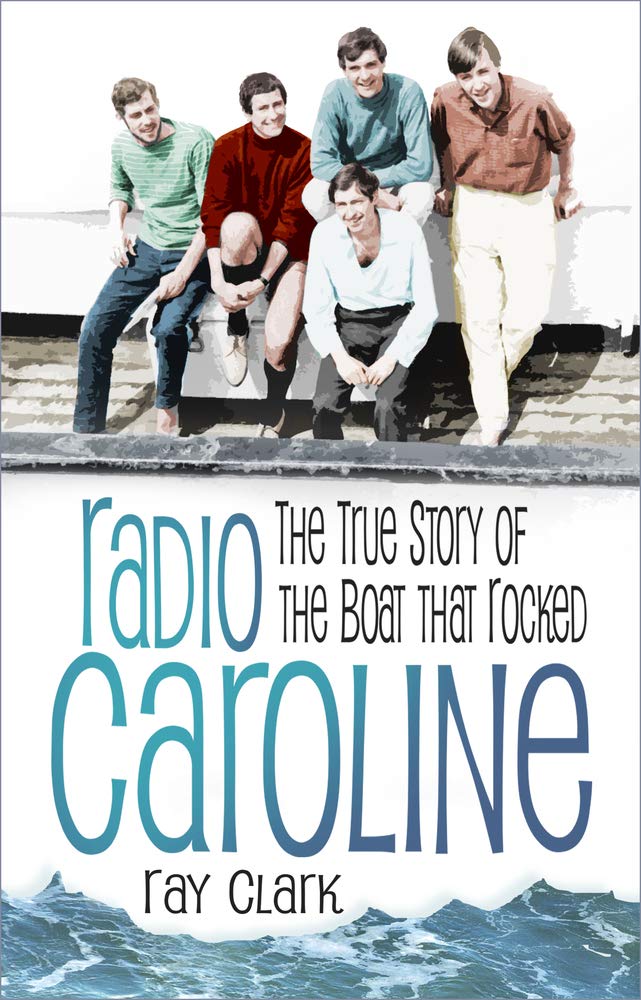|
Ray Clark knows his stuff! He tuned in to Radio Caroline during its first weekend on air at Easter 1964 and became a loyal listener. He followed the offshore stations avidly and, in 1977, won top
prize in a quiz on the subject held at the Flashback 67 convention. It was at this event that Ray met some of the people involved in ‘watery wireless’. Friendships developed and, some
ten years later, Ray became an offshore disc-jockey himself when he joined Radio Caroline on the mv Ross Revenge, broadcasting as ‘Mick Williams’.
A career in legitimate broadcasting followed, both in commercial radio and the BBC.
Ray was involved with the various Pirate BBC Essex tribute broadcasts and made two excellent documentaries about offshore radio: The award-winning All at Sea told the story of the pirates from the perspective of the loyal
listeners and All At Sea: August 14th, What Happened Next? chronicled Radio Caroline's battle for survival after the passing of the Marine Offences Act. For these documentaries, and others, he interviewed many of the people
who were involved with Radio Caroline. He has made good use of these interviews, and a number of new ones, in this book - originally published to coincide with the station's fiftieth anniversary. In fact the book is laid out very much
like a radio documentary with Ray's narration linking extracts from the interviews. The story is largely told in the words of people who were there.
Back in the eighties DJ Colin Nicol interviewed a number of the main players from the early days of offshore radio and he has allowed Ray to make use of his transcripts (some may be familiar as
they also appear on The Pirate Radio Hall Of Fame). As a result he is able to include anecdotes from Allan Crawford, Kitty Black, Richard Harris and Ken Evans, all involved with Radio Atlanta
but unfortuately no longer with us. Sadly Ronan O'Rahilly's condition (he was suffering from vascular dementia at the time Ray was carrying out research for this book and has since passed away) means that some questions about the
early days of Radio Caroline will probably never be answered but the author does an excellent job of laying out the known facts with the help of Ian Ross, one of the station's co-founders.
About half the book is devoted to the sixties era of Radio Caroline - the period when it was a mass market station with eight million listeners - but the previously less well documented broadcasts from the seventies and eighties are
extensively covered too. There are plenty of photos - many in colour - and a number which have not been published before.
Radio Caroline survived storm-tossed waters, official harassment, going aground, a sinking, vessels being towed away by a creditor, a mutiny by the crew, two police raids, a hurricane, the loss of the world's largest ship's
mast, government legislation and much, much more. The station has had a fascinating history - and Ray Clark brings the memories flooding back in this highly recommended book.
|

